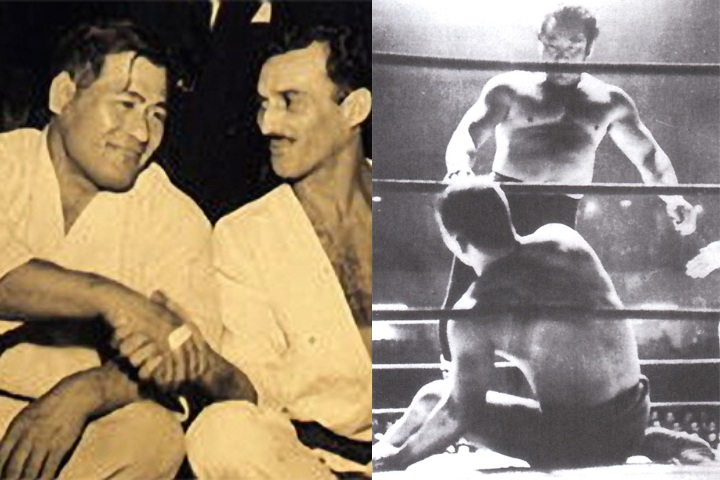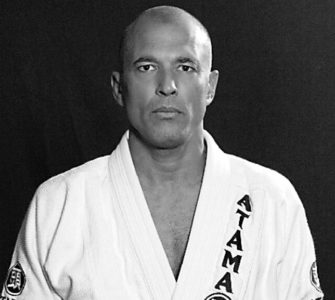In the intriguing world of professional wrestling, where theatrics often overshadow reality, a historical event stands out as a stark reminder of what happens when the lines between performance and reality are blurred. The story of Rikidozan, the father of Japanese pro wrestling, and his infamous match with judo legend Masahiko Kimura is one of betrayal, violence, and a shocking end that reverberated beyond the wrestling ring.
Rikidozan: The Pro Wrestling Pioneer
The tale begins with Rikidozan, born in what is now North Korea, who migrated to Japan to pursue a career in sumo wrestling. After a decade in sumo, he shifted to pro wrestling, training in the United States before returning to Japan. There, he founded his own promotion, setting the stage for his rise as a national hero. Rikidozan played a pivotal role in popularizing pro wrestling in Japan, positioning himself as a symbol of post-war resurgence against Western opponents.
Masahiko Kimura: The Judo Prodigy
Contrasting Rikidozan’s journey was Masahiko Kimura, a judo prodigy and multiple-time national champion. Known for his intense training and formidable technique, Kimura’s fame soared after his legendary match against Brazilian Jiu-Jitsu icon Helio Gracie. He later founded a pro wrestling company, balancing his martial arts prowess with the financial demands of family life.
The Blockbuster Match
The stage was set for a colossal showdown: Rikidozan, the pro wrestling icon, against Kimura, the judo legend, for the first-ever Japanese heavyweight wrestling championship. The match, held on December 22, 1954, at Tokyo’s Sumo Hall, started as a typical wrestling bout with clinches, lockups, and takedowns. However, a seemingly accidental low blow from Kimura triggered a drastic and violent shift in Rikidozan’s demeanor.
The Double-Cross
Abandoning all pretenses of a scripted match, Rikidozan unleashed a barrage of real strikes, transforming the ring into a scene of genuine violence. Kimura, caught off guard by this betrayal, was unable to effectively defend himself against the onslaught. The assault culminated in Rikidozan rendering Kimura unconscious, leaving him battered and defeated on the mat.
Aftermath and Speculations
The double-cross had profound consequences. Rikidozan faced death threats from the Yakuza and heightened fame, while Kimura struggled to comprehend the betrayal. Speculations abound about Rikidozan’s motives, ranging from a rage-induced reaction to a strategic move to assert the legitimacy of pro wrestling. Kimura, in his autobiography, lamented the treachery, indicating that the original plan was for a draw to set up future matches.
The Tragic End of Rikidozan
Rikidozan’s life, marked by connections to the Yakuza and a tumultuous personal life, met a tragic end. He was fatally stabbed in 1963 by a Yakuza member, Katsushi Murata, under circumstances still debated. His death was mourned by thousands, cementing his legacy in Japanese culture.
Kimura’s Journey Continues
Kimura’s fate, on the other hand, was less tragic. He continued his journey in judo, coaching future champions and leaving a lasting impact on the martial arts world.
The Rikidozan vs. Kimura match stands as a historical moment in sports entertainment, where the line between performance and reality was crossed in a shocking and unforgettable way. It serves as a reminder of the unpredictable nature of pro wrestling and the lasting impact such events can have on the lives and legacies of those involved.


















